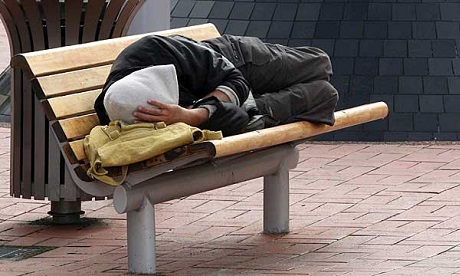A newly-released report says a reality of the COVID pandemic’s effect can be seen in soaring poverty rates throughout New Zealand.
Rising unemployment and corresponding increases in people relying on government income support is concerning. Then there’s food insecurity, housing insecurity, increasing child poverty, increasing drug use and increasing debt levels.
All these issues are identified in the Salvation Army’s latest State of the Nation report.
Ronji Tanielu – a lawyer, and a principal advisor at the Salvation Army – co-authored the report. It paints a picture of a country in the grip of a K-shaped recovery. Those with more are going up and those with less are going down.
Those with less are often the most marginalised and vulnerable New Zealanders.
“To be honest, Covid, if anything, made the cracks in their lives get worse. So they came into the Covid situation with cracks – addiction, housing, budgeting, child poverty. Covid magnified those cracks,” Tanielu says.
The report warns that Statistics New Zealand’s official figures due out next week for the year ended June 2020 would not show the pandemic’s reality. Statistics showing its full impact won’t be released until 2022.
In the meantime, the State of the Nation report says “increasing poverty and inequality seem likely without further changes.
“The changes made to income support and welfare policy to date do not seem sufficient to protect those losing employment from poverty,” the report says.
Nor are the changes able to “shift inequalities existing before the Covid-19 pandemic, or be enough to overcome the further pressures accompanying the Covid-19 crisis, particularly rising housing costs and higher unemployment.”
The report’s key findings show the face of inequality looks grim.
- Māori inequalities: While there was some progress on income disparity and unemployment, other long-standing disparities between Māori and non-Māori are not improving, or are worsening, especially imprisonment rates and numbers of people joining the social housing register.
- Food security: In 2020 The Salvation Army distributed more than 110,000 food parcels – double the number in 2019. This is the highest number in the 14 years of this report.
- Housing: There are soaring numbers on the social housing register, in transitional housing and receiving emergency housing grants. There are also serious challenges facing renters and first-home buyers.
- Children: The number of children in benefit households increased by more than 23,000 during 2020; this “rapid increase” – is a sign child poverty rates may not be declining but increasing, the report says. In addition,Covid-19 has impacted more heavily on students from lower decile schools.
- Social Hazards: Methamphetamine continues to dominate drug offences; cannabis offences declined; financial hardship worsened, with more clients presenting with higher debt levels.
- Work and incomes: Government spending on welfare massively increased because of Covid-19, focused mainly on short-term responses such as the Wage Subsidy Scheme, but the impacts will be long-lasting. There is rising unemployment and youth unemployment rose during the year; those not in education, employment, or training is now the highest number since 2012.
There is a little good news – there are continuing decreases in youth offending and teen pregnancies, the report says.
Source
- The Spinoff
- TVNZ
- Image: Stuff
